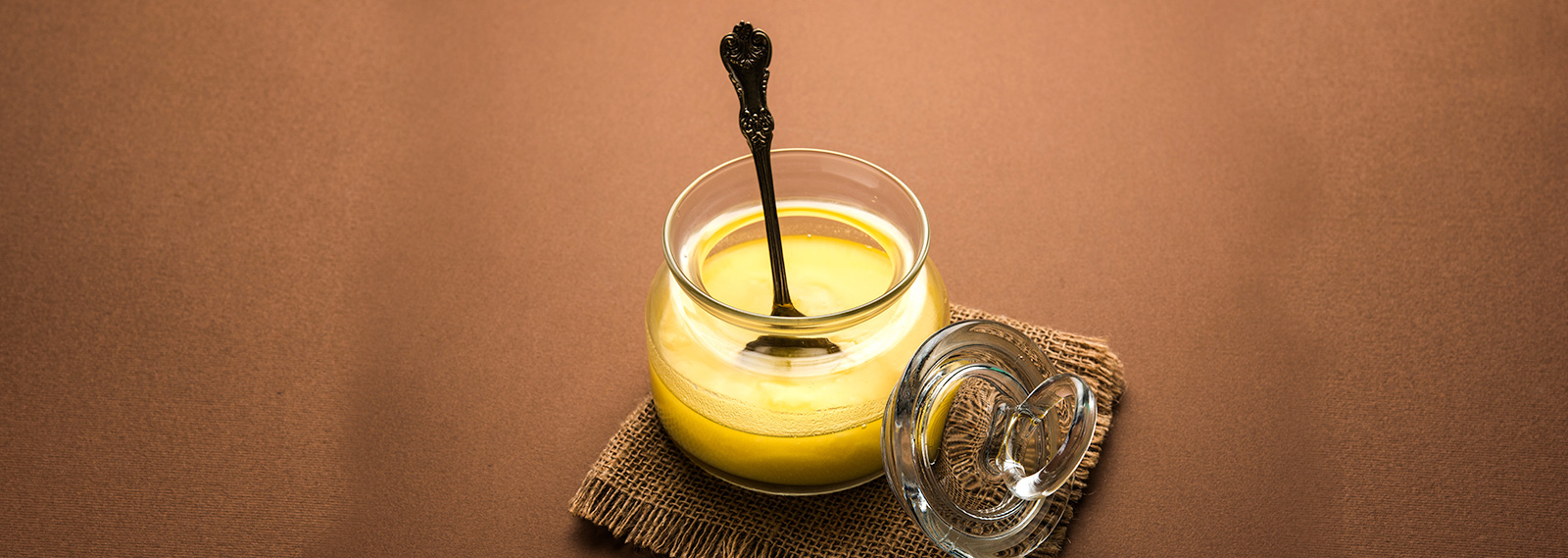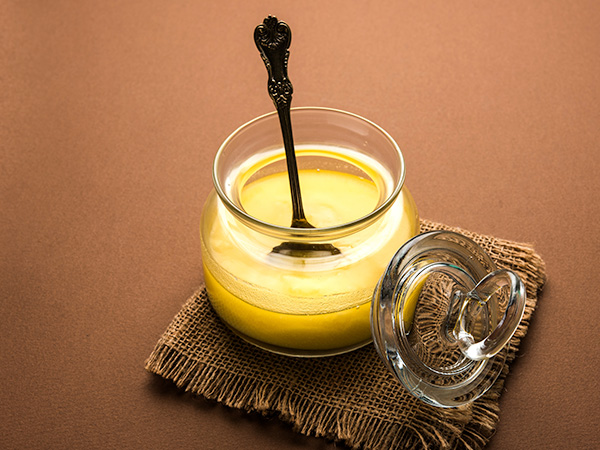A Foodie’s Guide to the History of Ghee
What is that one ingredient that makes an Indian cuisine truly desi? A spoonful of pure ghee on top. Clarified butter or ghee is the cornerstone of Indian cuisines and has continued to rule the kitchens here for centuries. Moreover, it is also gaining widespread popularity in the western countries where it is deemed as a super-fat which is lactose-free and Paleo-friendly.
Considered as the “food of gods” in India, the delicious ghee is also loaded with a host of health benefits and has powerful healing properties. While ghee can now be easily found in almost every Indian kitchen, do you know about its history and origin? Or how it became the super food that is now so commonly talked about in health circles all over the world? Let us have a look at the extensive history of ghee over centuries.
Invention of Ghee
While there is no particular incident described in history books leading to the invention of ghee, there are several proofs to confirm that it has been around for several centuries. The oldest documented mention of ghee is in the sacred songs of the Asiatic Indians around 2000-1500 B.C.
However, several researchers also believe that even the pre-Harappan civilizations between 6000-3500 B.C also knew the art of making ghee. Also, a number of Vedic Sanskrit texts such as the Yajur Veda, Rig Veda, and even the popular Bhagavad Gita, mention ghee as one of the most important elements of religious rituals.
It is due to this reason that ghee still continues to be of great importance while performing religious rituals. From lighting lamps during Diwali to bathing the deities on Krishna Janmashtami and Maha Shivaratri, ghee is a must.
Ghee Over the Years in India
It is since then that ghee has continued to be of great importance to Indians not just as a food but for rituals too. While households preferred preparing their own ghee from milk cream in the past and the practice is still very popular in North India, most of the metropolitan families now purchase branded ghee.
As a matter of fact, as per a 2016 report, the market size of ghee in the country is more than Rs. 10,000 crores. It should not come as a surprise that India is also the largest ghee manufacturer and consumer. But in the past couple of decades, its production has consistently increased in western countries too.
Ghee in Western Countries
Ghee is currently trending in several countries all over the world. It is mostly due to the millennials who are smitten with the idea of superfoods such as kale, quinoa, and organic produce. Even the latest Paleo diet is also abundantly responsible for its popularity. Paleo diet revolves around the idea of eating what our hunter ancestors used to eat thousands of years ago.
The Paleo diet is required to be high in fat. As compared to other sources of fat, the lactose-free ghee is considered to be an excellent option. Several scientific studies too have confirmed the health benefits of ghee and renowned chefs like Michel Richard and Alton Brown regularly use ghee in their recipes.

Health Benefits of Ghee
Ghee is known to contain fat-soluble vitamins which can help with weight loss. It also helps in maintaining healthy cholesterol levels and hormones. Its high heat point prevents the production of free radicals that can damage the function of cells in the body. Moreover, it is also a great source of vitamin A, vitamin K, vitamin E, and omega-3 fatty acids.
Some of the other top benefits of ghee include the following.
- Promotes joint flexibility
- Improves digestion
- Helps build stronger bones
- Relieves inflammation
- Improves intestinal health
Side-Effects of Ghee
It is recommended that one should only consume about 5 to 15 grams of ghee in a day. Excess of ghee could result in problems such as diarrhea and indigestion. Moreover, people suffering from kidney ailments, heart disease, obesity, or digestion-related problems should avoid consuming ghee on a regular basis.
Ghee: The Indian Superfood
As you can see, ghee has a vibrant history and still continues to rule the Indian cuisines. If you are planning to add ghee to your daily meals, make sure that you consider a reputed brand.
With the increasing cases of spurious ghee being seized all over the country, it is very important to make sure that you are only consuming pure and healthy ghee from a trusted brand. Impure ghee with their harmful ingredients could result in a host of side-effects and can significantly affect your health.

